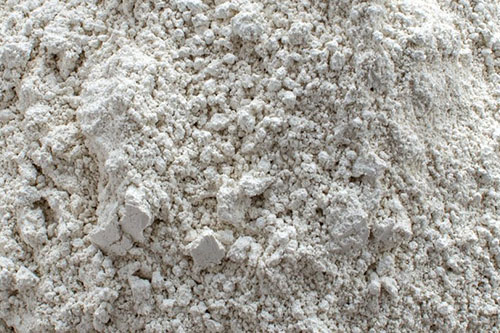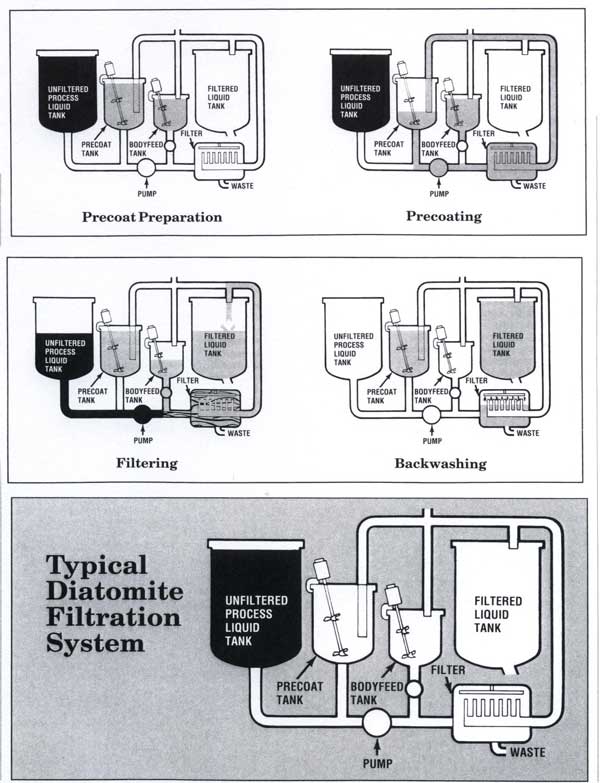Why Diatomaceous Earth Filtering Is the Preferred Choice for Many Water Systems
Opening the Advantages of Diatomaceous Planet Filtering System for Pure and Clean Water
The exploration of diatomaceous planet (DE) filtering system provides a compelling option for those seeking efficient and sustainable water filtration techniques. As the demand for tidy water proceeds to climb globally, understanding the diverse applications and benefits of DE filters may reveal essential understandings for both house and commercial usage.
What Is Diatomaceous Planet?
Diatomaceous planet, typically described as DE, is a normally happening stratified rock composed primarily of the fossilized remains of tiny, aquatic organisms called diatoms. These single-celled algae are rich in silica, which is the primary component of DE. The one-of-a-kind structure of diatomaceous earth consists of tiny, permeable bits that give a high surface, making it a reliable filtering system medium.
DE is commonly harvested from old lake beds and down payments, which have accumulated over countless years. It shows up as a penalty, white to off-white powder, and its chemical composition primarily includes silicon dioxide, in addition to trace quantities of various minerals. This composition is what provides DE its impressive residential or commercial properties.
In addition to its application in water purification, diatomaceous earth is used in a variety of sectors, including farming, food storage, and parasite control. Its ability to soak up wetness and its unpleasant qualities make it a useful resource in these areas. On the whole, diatomaceous planet sticks out as an eco pleasant option for numerous applications due to its all-natural origin and performance in filtration procedures.

How Diatomaceous Planet Filtering Functions

When water passes via a diatomaceous planet filter, the great fragments are captured in the elaborate network of little pores. The dimension and form of these pores are essential, as they are made to target certain contaminants while allowing tidy water to move via. As water steps via the filter tool, the mechanical activity of the diatomaceous planet captures larger particles, while smaller sized impurities are absorbed or literally blocked.
In addition, the surface location provided by diatomaceous earth is comprehensive, enhancing its capacity to hold contaminations. This results in a steady buildup of caught particles, which can be occasionally removed via a backwashing procedure. This technique guarantees consistent filtering performance and adds to the general effectiveness of maintaining clean and pure water.
Benefits Over Conventional Filtration
When contrasting diatomaceous planet filtering to standard filtering methods, numerous benefits arise that enhance water filtration effectiveness. Among the main advantages is the premium purification capability of diatomaceous planet (DE), which can get rid of smaller sized bits and impurities that traditional filters may miss out on. The tiny structure of DE permits it to catch impurities, consisting of microorganisms and protozoa, leading to cleaner water.
In addition, diatomaceous earth filters often tend to have a longer life expectancy than conventional media, minimizing the frequency of substitute and upkeep. This durability not only decreases operational expenses yet also reduces waste, adding to more lasting techniques. DE filters also operate at lower pressure, which can bring about energy cost savings in large applications.
An additional considerable advantage is the convenience of diatomaceous earth. It can be utilized efficiently in various contexts, from local water therapy centers to specialized industrial applications (diatomaceous earth filtering). The natural make-up of DE makes it an eco-friendly alternative, complimentary from harmful chemicals and pollutants commonly connected with synthetic filtering systems
Applications in Family and Sector
Countless applications of diatomaceous planet filtering system can Get More Information be found in both house and commercial setups, highlighting its versatility and efficiency in water purification. In domestic atmospheres, diatomaceous earth (DE) filters are typically utilized in pool, efficiently recording debris and microorganisms, thereby preserving water quality and health. In addition, several houses make use of DE in home water filtration systems, where it serves to remove pollutants, sediment, and hazardous pathogens, making certain secure alcohol consumption water.
In industrial applications, diatomaceous earth filtering system is integral to numerous markets, including food and drink production, drugs, and wastewater therapy. In the food industry, DE is made use of in the filtering of beer and wine, promoting the elimination of yeast check my blog and other particulates while maintaining the beverage's flavor account. In addition, in wastewater therapy facilities, DE filters play a critical function in enhancing water top quality by capturing pollutants and promoting the recycling of water resources.
The performance of diatomaceous earth in both household and commercial applications underscores its vital duty in advertising tidy water gain access to, adding to public health, and sustaining sustainable techniques.

Choosing the Right DE Filter
Choosing the appropriate diatomaceous earth (DE) filter is crucial for guaranteeing ideal water filtration, whether for commercial or residential use. diatomaceous earth filtering. The choice of a DE filter depends upon a number of essential factors, consisting of the details application, circulation rate requirements, and the desired level of filtration
First, examine the quantity of water to be filteringed system. For residential use, smaller sized filters suffice, while commercial applications might demand larger, high-capacity systems. Next, think about the flow rate; it is essential to select a filter that can deal with the required throughput without endangering water top quality.
In addition, review the filtration level; DE filters been available in different grades, affecting the elimination of contaminations and particulates. Higher-grade filters are ideal for applications needing strict pureness degrees.
Last but not least, consider the maintenance requirements and the schedule of substitute DE powder. Filters that are simpler to maintain and have readily available materials will certainly minimize downtime and operational costs. By very carefully taking into consideration these variables, one can choose a DE filter that meets details requirements, guaranteeing the distribution of risk-free and tidy water.
Verdict
In summary, diatomaceous earth filtering stands for a significant advancement in water filtration technology, offering improved image source efficiency and performance in capturing impurities. Accepting diatomaceous planet filtering system can lead to improved public health results and higher accessibility to tidy water.
The exploration of diatomaceous planet (DE) filtering system offers a compelling alternative for those looking for sustainable and efficient water purification methods.When comparing diatomaceous earth filtering to standard filtration techniques, a number of advantages emerge that enhance water filtration performance.Many applications of diatomaceous planet filtering can be discovered in both home and industrial settings, highlighting its flexibility and efficiency in water purification. In domestic atmospheres, diatomaceous planet (DE) filters are commonly employed in swimming pools, efficiently capturing particles and microorganisms, thereby maintaining water quality and health. In wastewater therapy facilities, DE filters play a crucial function in enhancing water quality by capturing pollutants and helping with the recycling of water sources.